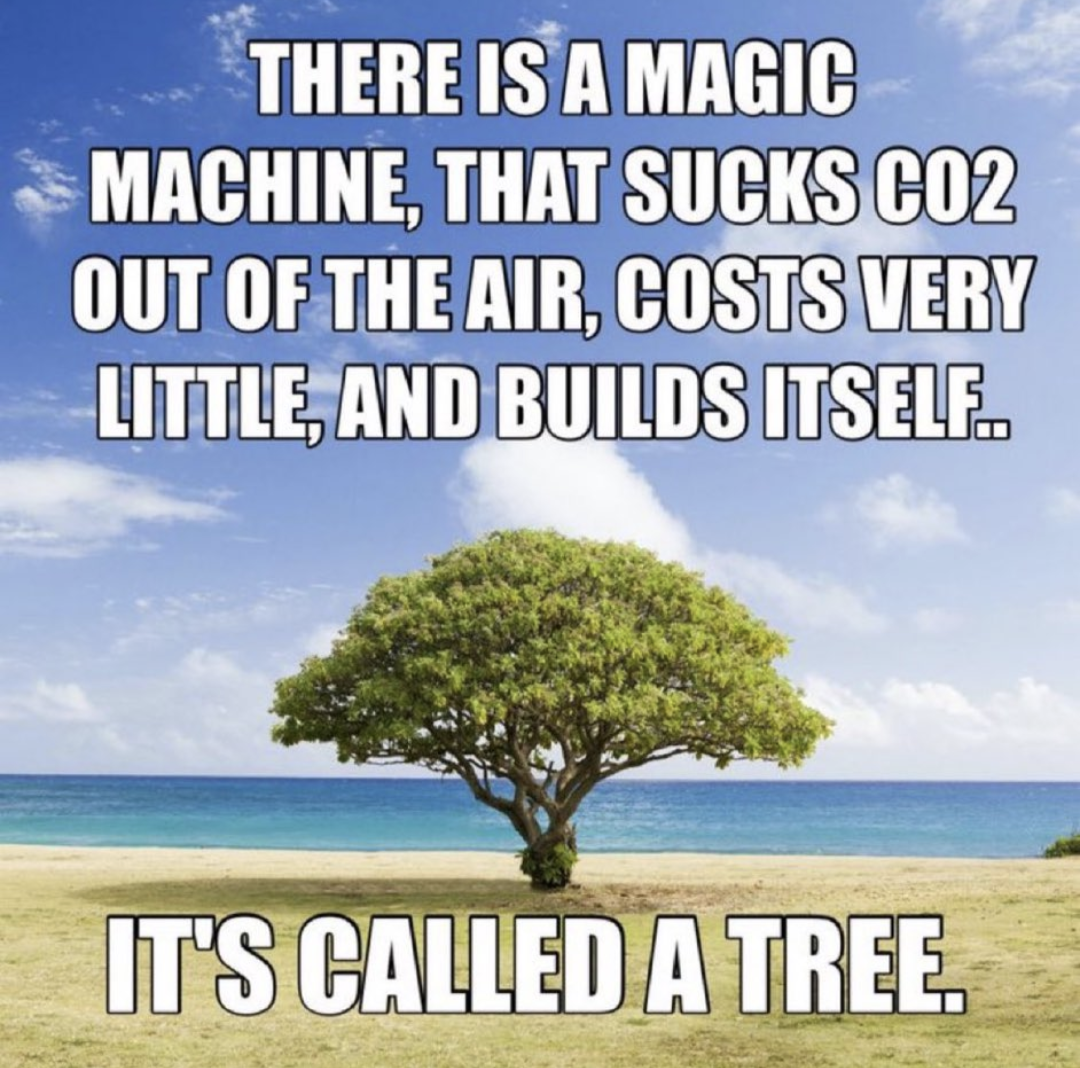this post was submitted on 30 Jul 2024
607 points (93.3% liked)
Nature Enthusiasts
931 readers
7 users here now
For all media, news and discussion focusing on nature!
The rules for posting and commenting, besides the rules defined here for lemmy.world, are as follows:
1-No advertising or spam.
2-No harrassment of any kind.
3-No illegal or NSFW or gore content.
founded 2 years ago
you are viewing a single comment's thread
view the rest of the comments
view the rest of the comments

Doing some back of the envelope calculations we have put about 1.6 trillion tons of CO2 into the atmosphere since the industrial revolution. Latest estimates put the number of trees on earth at around 3 trillion. Looking at how much CO2 a tree takes up puts the average around 600lbs over the first twenty years. So combing all this if we want to plant enough trees to take up all the excess CO2 we would need about 5.3 trillion more trees, or almost double the total number of trees on the planet.
This is simply not achievable in a fast enough time span to make a difference. Nevermind that I was being super optimistic with all my calculations and the real number needed is likely much higher still.
It is simply a necessity to develop better methods to pull CO2 directly from the air and to do it on the same scale that we have been releasing CO2.
Instead of wasting energy and effort trying to remove existing CO2 from the air, people should instead spend effort on not releasing more carbon dioxide into the air. It's similar to things like plastic waste where it's better not to create any waste than to recycle plastic, or the same as private transport where it's better to not have or drive a private car or private jet than to drive or fly energy efficient.
There's about 0.05% CO2 in the air. So pulling CO2 from the air is as inefficient as it gets. It's somewhere between moving to Antarctica to bathe in the sun and using the full moon for solar panels.
The theoretical best place to sun bathe is, unsurprisingly, on the sun! Similarly it's best to scrub CO2 at the source, meaning the exhausts! Filter it at motors, kilns, chimneys, etc.
We have to do both. If today our emissions went to zero we would still see more warming because of all that CO2 we've already released. First priority is to get to net zero so we can stop making the problem worse, then we have to remove all the CO2 we released. We have the technology now to do step one it's just a matter of scaling it up. While we work on step one we need to do the research on the best way to do step two so when we get to that point we have something ready to go. Pulling CO2 out of the air is going to be inefficient no matter what just from the physics of the problem but it still needs to be done and the energy to do so has to come from renewables.
One proposed solution is using the excess energy production during peak hours for renewables to sequester carbon which would help but likely only be a small initial step in the right direction.
I think that'd be too little "bang for your buck" to be worth it. Investments might make matters even worse. After all, at some point building more and more energy generators for less and less efficient things will have severe drawbacks. Those energy generators aren't built for free, nor are the machines necessary to build them, let alone the inefficient machines used to scrub co2 from the air.
I believe an active push towards carbon dioxide removal can be a double edged sword and even dangerous, especially if it relies on electricity (as opposed to actions which provide other benefits and help nature recover, like restoring forests, marshes/wetlands, etc.). As long as people want to do it with electricity, the demand for fossile fuels for electricity is bound to increase one way or another. Even if one country wants to do it 100% clean and could produce enough energy for direct air capture and all of its inhabitants are trustworthy, they're still going to be in competition with other countries - and if country A happens to own all the materials to build things like batteries or wind turbines, then country B will struggle and instead rely on gas or coal plants.
Some lobbyists might tell you otherwise, but there's definitely many many more important than things to invest time/effort/money into. Social care, social injustice, public transportation, energy storage/stability, natural disasters, peace, climate refugees, etc.